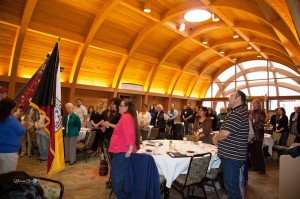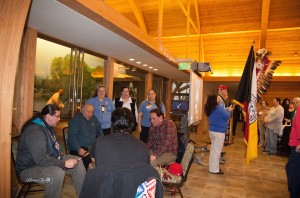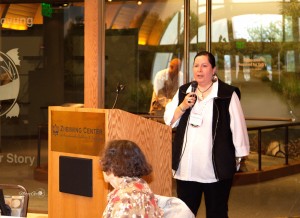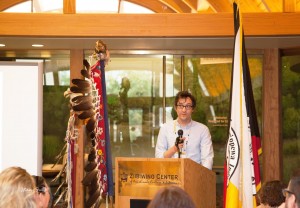This is the first of seven posts that recount last month’s Convening Great Lakes Culture Keepers (CGLCK) Institute at the Ziibiwing Center of Anishinabe Culture and Lifeways in Mt. Pleasant, Michigan, April 14-17, 2014. This four-day gathering of tribal librarians, archivists, and museum curators from Wisconsin, Minnesota, and Michigan, as well as staff and graduate students from the University of Wisconsin-Madison School of Library and Information Studies, was graciously funded by the Institute of Museum of Library Services. You can read more about the overview of the project here.
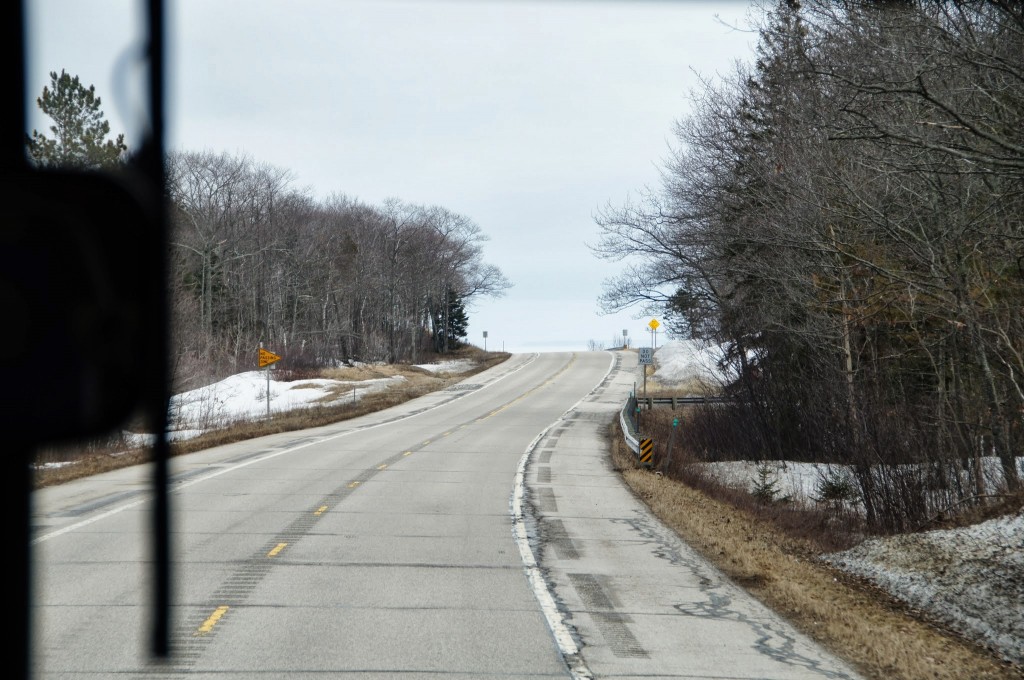
Here we are, traveling again! By the time mid-April rolled around, we were all ready to embark on the largest gathering our network has had to date. Not just as Convening Culture Keepers, but Convening Great Lakes Culture Keepers. We had been spending the last year surveying tribal professionals about their greatest professional development needs, planning classes and finding instructors based on those survey results, and working with Ziibiwing Center staff, our hosts, to plan details of the Institute. So what better what to begin the journey but by traveling together – literally – on a coach bus!
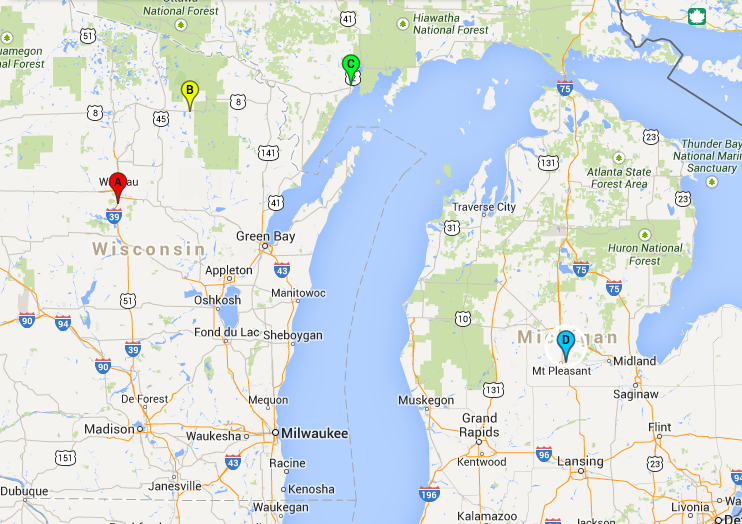
The coach bus started in Rothschild, which is right outside of Wausau, Wisconsin. We stopped in Forest County Potawatomi at the Cultural Museum and Library, where more people joined us. We picked up folks in Escanaba, Michigan, grabbing some lunch at Subway. We then made our way east and south across Michigan. For many of us, this was our first time crossing from the Upper Peninsula of Michigan to the lower part of the state. What a bridge!
We arrived at the Soaring Eagle Casino and Resort late that night. Wow- what an impressive facility! The facility is huge, and very beautiful. It has several restaurants, gift shops, and an expansive casino.
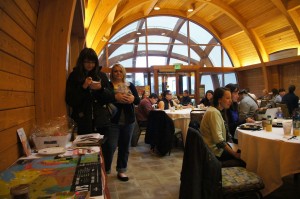
The next morning, those who had taken the coach bus to Mt. Pleasant boarded the bus again, now with many new faces of those who had traveled by car or plane. People began greeting each other — some of us knew each other from past Convening Culture Keepers gatherings, and there were also many new folks we were meeting in person for the first time — and when we arrived at Ziibiwing, we enjoyed a delicious breakfast together.
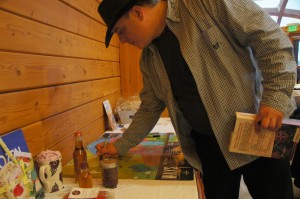
One way to keep us connected beyond the Institute was through the gift exchange. We asked everyone who attended the Institute to bring a gift that represented their community or their role in the community. The first morning, we asked attendees to drop off their gifts at a gift table, and sign a map created by The Ways to show where they were from.
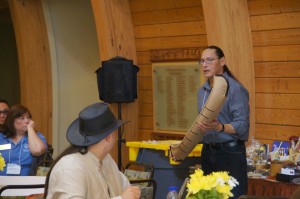
Each morning, about fifteen people had the opportunity to talk about their gift in front of the group. Stay tuned for our sixth post that recounts our last evening’s events, including the gift exchange.
We officially began our Institute with an opening ceremony that included a presentation of the flags, drum songs, and an opening prayer.
Shannon Martin, the director of Ziibiwing, and Omar followed with a welcome and introductions. Every person had a chance to stand up and introduce themselves, sharing their job titles, institution, and where they were from.
Shannon and her staff oriented us all to Ziibiwing by sharing the history of their institution and how it has come to be the place that it is today. This helped ground us in our work for the week, as the staff emphasized how the project was community-driven and included elders and youth in every stage of the process.
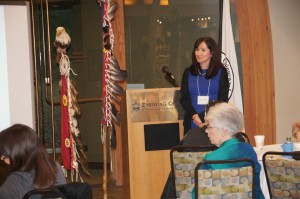
Dr. Amy Lonetree gave the keynote address, “Exhibiting Native America: Museums, Decolonization, and Addressing the Legacies of Historical Unresolved Grief”. She is an Associate Professor of History and the University of California, Santa Cruz, and wrote about Ziibiwing in her book Decolonizing Museums: Representing Native America in National and Tribal Museums. You can read more about her here. It was an honor to hear Amy speak, because her chapters are included in the TLAM course, and many of the TLAM students have discussed her work in the classroom.
After lunch, we all split into our first classes, a choice of five different mini-workshops:
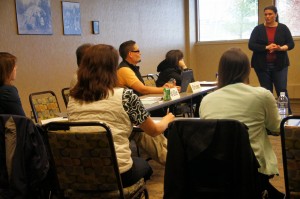
-Acquiring Library Materials
-Writing Policies for Tribal Cultural Institutions
-Supporting Your Mission with Quality Cultural Educational Programs and Resources
-Museum Gift Shop Sustainability
-Archival Survival Kit
You can read more about the classes here, and stay tuned for our second post in this Convening Great Lakes Culture Keepers Institute series.
-Robin Amado

